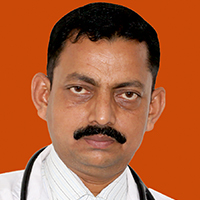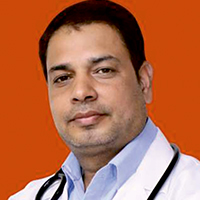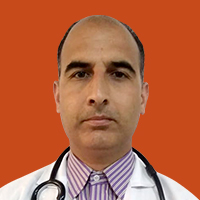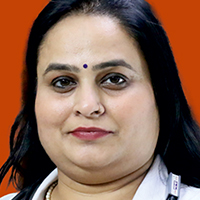

Successful Treatments
Clinics
Doctors
What is Azoospermia and What Does Ayurveda Say About it?
Azoospermia is a condition where no sperm is found in your semen. This means that your semen contains no sperm cells even though you may ejaculate normally. The result is that it becomes hard for you to become a father naturally.
There are different types of Azoospermia. Sometimes, your body creates sperm but a blockage prevents it from coming out. Other times, your testicles may not be creating sperm at all, either due to hormonal problems, previous infections, or hereditary problems. Some men do not even recognise that they have Azoospermia until they face challenges in conceiving.
What Does Ayurveda Say About Azoospermia?
As per Ayurveda, Azoospermia is caused by an imbalance in your Shukra Dhatu, the reproductive tissue which creates sperm. When this tissue is weak, dry, or blocked, sperm production ceases or becomes very low. Such conditions are described in Ayurveda as Shukra Dosha, Kshina Retasa (low sperm) and Abija (absence of sperm).
The good news is that Ayurveda offers a natural, personalised treatment option for this condition. Azoospermia treatment in Ayurveda focuses on strengthening your body from within, eliminating Ama (toxins), balancing your doshas (Vata, Pitta, and Kapha) and boosting sperm health with natural herbs, diet and lifestyle modifications.
Azoospermia can be controlled naturally with advice from an experienced Ayurvedic doctor, boosting your odds of conception. Therefore, if you're looking for a long-term and side-effect-free solution, Ayurvedic treatment for Azoospermia may be just what you need.
Types of Azoospermia
If you have been diagnosed with Azoospermia, it is important to understand which type of this condition you are suffering from. Azoospermia basically means that there is no sperm in your semen, but the reason may be different for different individuals. Knowing the type helps you in selecting the appropriate Azoospermia treatment in Ayurveda for better health.
Azoospermia is generally of three types:
1. Obstructive Azoospermia (Post-testicular Azoospermia): This means your body is producing sperm but something is keeping it from coming out in your semen.
The sperm is there but can not reach the semen. The good news is that this can be treated with Ayurvedic therapies to improve circulation and clear obstruction.
2. Non-obstructive Azoospermia (Testicular Azoospermia): Here the problem is in your testicles. They're either not making sperm or making very little. This is considered a weakness of your Shukra Dhatu (reproductive tissue) by Ayurveda. Ayurvedic treatment of Azoospermia strengthens the root system, improving sperm quality and stimulating sperm production.
3. Pre-testicular Azoospermia: Here, your testicles are fine but your brain isn't sending the right hormonal signals to trigger sperm production. Hormone balance can be restored naturally with the proper Ayurvedic medicines for Azoospermia.
Common Causes of Azoospermia
If you have been confirmed with Azoospermia, you may be concerned or confused. But the key is understanding why it is happening. This can help you select the appropriate Ayurvedic treatment for Azoospermia and improve your chances of recovery.
The most common reasons for Azoospermia are:
1. Blockages in the Reproductive Tract (Obstructive Azoospermia)
Vasectomy: Surgical method of birth control which blocks sperm flow.
Infections: Past infections in the testicles or urinary tract might obstruct sperm tubes.
Cysts or Scar Tissue: These might press against or even block sperm-carrying tubes.
Injury or Surgery: Any past pelvic injury or surgery near the groin.
Congenital Absence of Vas Deferens: Some males are born with no sperm ducts (associated with cystic fibrosis genes).
2. Testicular Problems (Non-obstructive Azoospermia)
Genetic Conditions: Disorders like Klinefelter syndrome (XXY chromosomes) can impact sperm production.
Varicocele: Expansive veins in the scrotum which increase heat and damage sperm-making ability.
Undescended testicles (Cryptorchidism): If the testicles didn’t drop properly during childhood.
Sertoli Cell Only Syndrome: Unusual disorder where testicles have supporting cells but absolutely no sperm-making cells.
Spermatogenic Arrest: The process of making sperm starts but stops midway.
Infections Like Mumps: Especially in case it happened after puberty.
Radiation or Chemotherapy: Cancer treatments can destroy sperm-producing cells.
Exposure to Toxins: Fertility can also be affected by pesticides, chemical substances or heavy metals.
3. Hormonal or Brain-Related Problems (Pre-testicular Azoospermia)
Low Hormone Levels: Particularly GnRH, LH or FSH, which are needed to promote sperm production.
Kallmann Syndrome: Unusual disorder where the brain does not send fertility signals.
Pituitary or Hypothalamus Disorders: These are brain components which manage your hormones.
Obesity and Stress: Both can cause hormone imbalance and low testosterone.
Certain Medications: Some antidepressants, steroids or hormone blocking medicines can also lower sperm count.
4. Lifestyle & External Factors
Smoking & Alcohol: Both reduce sperm production & harm sperm cells.
Drug Use: Anabolic steroids or recreational drugs can affect sperm production.
Tight Clothing & Heat Exposure: Wearing tight underwear or frequent hot baths can increase testicular temperature.
Nutritional Deficiencies: In Ayurvedic terms, insufficient zinc, vitamin D and antioxidants can impact your Shukra Dhatu (reproductive strength).
These problems are often linked with Vata, Pitta and Kapha imbalances and inadequate nutrition of the Shukra Dhatu in Ayurveda. If you have these issues, Ayurvedic medicine for Azoospermia could be your first step towards recovery.
Signs and Symptoms of Azoospermia
Azoospermia often goes undetected as there are rarely any obvious signs. Many men only discover it when they have trouble conceiving a child. But depending on the underlying cause, you might have some symptoms that give early clues. Attention to these signs may help you seek timely Azoospermia treatment in Ayurveda.
These are signs and symptoms to look for :
Low Sex Drive: Low testosterone levels may cause a lack of interest in sexual activity and this may also affect sperm production.
Erectile Dysfunction: Difficulty in getting or maintaining an erection can be due to hormonal imbalance or blood flow problems that also contribute to Azoospermia.
Small or Soft Testicles: Testicles that feel smaller than usual or softer may produce less or no sperm.
Lump or Swelling in the Testicles: Unusual swelling, discomfort, or lumps in the testicle area may be a sign of varicocele, a disorder associated with poor sperm production.
Pain or Discomfort in the Scrotum: Constant or intermittent pain in the scrotum can be signs of an infection, varicocele, or some other fertility problems.
Low Facial or Body Hair: Reduced hair growth on the face or body may indicate hormonal imbalance, particularly low testosterone levels.
Delayed or Incomplete puberty: If you had very late puberty or it seemed incomplete (less muscle, voice changes, or body hair) it may be related to underlying hormonal problems.
If you spot any of the signs above, don’t ignore them. Early care with Ayurvedic medicines for Azoospermia can help you restore your fertility naturally.
Jiva Ayunique™ Treatment Philosophy - A Holistic Approach to Azoospermia
Jiva Ayurveda offers a natural approach for Ayurvedic treatment of Azoospermia. The treatment plans are customised in a way to target the root causes of Azoospermia, and instead of just targeting the symptoms, they focus on complete and holistic healing, balance and stability.
Core Principles of the Jiva Ayunique™ Treatment Philosophy
HACCP Certified Ayurvedic Medicines: These herbal formulas are prepared under strict safety standards to detox your body, promote natural healing and mental calm.
Yoga, Meditation & Mindfulness: Gentle, effective ways to ease your mind, reduce everyday stress and support inner wellness.
Ayurvedic Therapies: Time-tested treatments like Panchakarma, herbal oil massages and cleansing procedures remove toxins and bring your body back in balance.
Diet & Lifestyle Support: Personalised tips from Ayurvedic experts on what you should eat and how to live every day to stay strong, energetic and avoid future health problems.
Ayurveda Medicines for Azoospermia
If you have minimal or zero sperm count, Ayurveda could help you recover holistically and naturally. Azoospermia treatment in Ayurveda extends beyond symptom treatment and works on strengthening your body from within. It removes toxins, balances your doshas and rejuvenates your Shukra Dhatu (reproductive tissue cells) with herbs and natural treatments.
These are some Ayurvedic medicines for Azoospermia that are known to promote sperm count, semen quality and male fertility.
Gokshura (Tribulus terrestris)
- Balances testosterone and estrogen levels naturally.
- Increases blood circulation to the reproductive system.
- Good for erectile dysfunction, low libido and urinary issues.
- Strengthens reproductive organs and also increases fertility.
Safed Musli (Chlorophytum borivilianum)
- Increase sperm motility, semen volume and sperm count.
- Increases physical endurance and performance.
- A natural aphrodisiac to improve reproductive vitality.
- Often used in Ayurvedic treatment for Azoospermia.
Kawach / Mucuna Pruriens
- An aphrodisiac herb mentioned in ancient Ayurvedic texts.
- Increases dopamine and testosterone levels.
- Boosts libido and sperm quality.
- Strengthens the nervous system and also aids in coordination.
Shilajit
- Acts as a rejuvenator & conventional sex tonic.
- Increases your muscle strength and reduces physical fatigue.
- It induces sexual energy and vitality.
- Considered one of the best Ayurvedic medicines for Azoospermia.
Ashwagandha (Withania somnifera)
- Reduces stress, anxiety & mental exhaustion.
- Boosts libido & supports hormone function.
- Improves antioxidant levels and decreases oxidative stress.
- Balances blood sugar and supports thyroid health.
Shatavari (Asparagus racemosus)
- Rejuvenates male reproductive organs.
- Increases sperm volume, motility and quality.
- No side effects and safe for long term use.
- Commonly included in Azoospermia treatment in Ayurveda.
Chandraprabha Vati
- Classic polyherbal formulation for urinary and reproductive disorders.
- It reduces inflammation and supports healthy sperm production.
Makardhwaj Vati
- Increases sperm quality and stamina.
- Improves reproductive health.
All these herbs and formulations are used as part of a personalised Ayurvedic treatment of Azoospermia which usually includes detox therapies (like Panchakarma), lifestyle changes and diet correction. They are best prescribed by an Ayurvedic expert after determining your body type or Prakriti and root cause.
FAQs
1. How do you treat Azoospermia naturally?
Azoospermia may be naturally addressed using Ayurvedic herbs, detox therapies and lifestyle modifications. Ayurveda uses Ashwagandha, Shilajit & Safed Musli to promote sperm production. A balanced diet, reducing stress, alcohol and smoking could also help with recovery.
2. Which medicine is best for Azoospermia?
Not every medication is appropriate for everyone. However, Ayurvedic medicine for Azoospermia includes Shilajit, Shatavari, and Ashwagandha. Classical combinations like Makardhwaj Vati or Chandraprabha Vati are also used after checking your body type and root cause. Consult an Ayurvedic professional first.
3. What are the best foods for Azoospermia?
The best foods are ones that nourish your reproductive system. Include ghee, pumpkin seeds, almonds, dates, milk, black gram (urad dal) and seasonal fruits. These improve Shukra Dhatu and fertility in the Ayurvedic sense. Avoid spicy, junk and processed foods.
4. Which vitamin is good for Azoospermia?
For good sperm health, your body requires minerals including Vitamin D, Vitamin E, and Zinc. These shield sperm cells from damage and support hormonal balance. In Ayurveda, these nutrients are acquired through herbs and a proper diet.
5. What drink increases sperm?
Warm milk with a teaspoon of Ashwagandha powder or Shatavari is an Ayurvedic beverage to boost sperm count. You can also take Amla juice in the morning. Alcohol, sweetened sodas and excessive coffee can damage sperm health.
6. How to clear a sperm blockage?
In obstructive Azoospermia, Ayurvedic treatments including Basti (medicated enema), Abhyanga (herbal oil massage) and certain herbs can promote circulation and ease inflammation. Ayurveda helps you heal naturally without negative effects.
7. Can sperm come back after Azoospermia?
Yes, in many cases sperm production returns with treatment. Ayurvedic treatment of Azoospermia strengthens your reproductive tissues and balances hormones. Results depend on the underlying cause but early diagnosis and consistent treatment increase your chances.
8. How is Azoospermia diagnosed in Ayurveda?
An Ayurvedic expert checks your Prakriti (body type), lifestyle, digestion and symptoms. Dosha imbalances and Shukra Dhatu health are understood through pulse diagnosis and physical signs.
9. Can stress and anxiety cause Azoospermia?
Yes, stress can upset your hormonal balance and influence sperm production. High cortisol (stress hormone) lowers testosterone levels and retards sperm formation. Ayurveda focuses on calming the mind through herbs like Brahmi, Ashwagandha alongside yoga and meditation.
10. Can Panchakarma help with Azoospermia?
Yes, Ayurvedic detox therapy Panchakarma is useful for removing toxins from the body. Virechana (cleansing), Basti and Abhyanga are especially useful for improving sperm flow and reproductive nourishment.
11. Is Azoospermia always permanent?
Not always. Most cases are reversible, particularly obstructive Azoospermia. Sperm production can improve with treatment, even in non-obstructive types. Ayurveda restores fertility naturally by addressing the underlying cause of your condition.
12. Can obesity or poor lifestyle cause Azoospermia?
Yes, being overweight, eating unhealthy foods, smoking and not getting enough sleep can affect sperm health. Ayurveda suggests a proper daily routine (Dinacharya), balanced meals and daily exercise to improve fertility and build your Shukra Dhatu over time.
Top Ayurveda Doctors
Our Happy Patients
Social Timeline
Home Remedies
Related Disease
- Ayurvedic Treatment for HIV AIDS
- Ayurvedic Treatment for Erectile Dysfunction
- Ayurvedic Treatment for Frigidity
- Ayurvedic Treatment for Oligospermia
- Ayurvedic Treatment for Premature Ejaculation
- Ayurvedic Treatment for Syphilis
- Ayurvedic Treatment for Trichomoniasis
- Ayurvedic Treatment for Epididymitis
- Ayurvedic Treatment for Chlamydia
- Ayurvedic Treatment for Gonorrhea
- Ayurvedic Treatment for Low AMH
- Azoospermia Treatment in Ayurveda
Latest Blogs
- क्या अचानक बढ़ता दर्द और जोड़ों की लालिमा गाउट की निशानी है? शरीर में जमा अम्ल की भूमिका समझिए
- Migraine और भोजन का समय: देर से खाना सिरदर्द को क्यों बढ़ा देता है?
- क्या एंटीबायोटिक लेने के बाद पाचन पूरी तरह बिगड़ गया? आयुर्वेद के अनुसार Colitis के उपचार जानें
- अगर मामूली आहार भी पाचन तंत्र सहन न कर पाए तो Colitis को हल्का क्यों नहीं मानना चाहिए? आयुर्वेदिक दृष्टि से जानें
- लंबे समय से सक्रिय Colitis क्यों शरीर की रिकवरी क्षमता को कमज़ोर कर देती है? आयुर्वेदिक नज़र से जानें
- नॉर्मल एंडोस्कोपी, नॉर्मल रिपोर्ट्स… फिर भी रोज़ दर्द—IBS में गलत इलाज कैसे बीमारी को Chronic बना देता है! आयुर्वेदिक उपचार समझें
- क्या बाहर का खाना या मसालेदार भोजन आपके IBS को तुरंत ट्रिगर कर देता है? आयुर्वेदिक दृष्टि से समझें और कब Ayurvedic doctor से मिलना चाहिए जानें
- IBS में दवाइयाँ काम क्यों नहीं करतीं? आयुर्वेदिक कारण और उपचार समझें
- कभी कब्ज़, कभी दस्त: यह सिर्फ पाचन नहीं, पूरे सिस्टम का असंतुलन हो सकता है! जानें कब Ayurvedic doctor से मिलना ज़रूरी हो जाता है
- क्या सर्दियों में दवाइयों के बावजूद साँस पूरी नहीं खुलती? अस्थमा की जड़ आयुर्वेद से समझें
- क्या धूल, धुआँ या परफ्यूम से तुरंत साँस लेने में तकलीफ़ होती है? Asthma के ट्रिगर आयुर्वेद की नज़र से समझें
- सर्दियों में अस्थमा क्यों ज़्यादा बिगड़ जाता है? ठंडी हवा और कफ-वृद्धि का आयुर्वेदिक कारण जानें
- क्या ठंडी हवा लगते ही सीने में जकड़न और साँस लेने में परेशानी होती है? अस्थमा को आयुर्वेद की नज़र से जानें
- क्या सुबह उठते ही बलगम के साथ खाँसी आना अस्थमा का संकेत है? आयुर्वेद से समझें
- क्या लंबे समय तक लैक्सेटिव का उपयोग आपकी कब्ज़ को और जटिल बना रहा है? आयुर्वेदिक समाधान जानें
- क्या गैस, पेट फूलना और सिरदर्द का साथ में होना Chronic Constipation का क्लासिक पैटर्न है? आयुर्वेदिक व्याख्या समझें
- क्या सुबह नींद खुलते ही पेट साफ न होना ‘धीमी अग्नि’ का संकेत है? दीर्घकालिक कब्ज़ में आयुर्वेदिक कारण जानें next topic
- क्या लंबे समय तक बैठकर काम करने से आपकी कब्ज़ लगातार बढ़ रही है? आयुर्वेदिक दृष्टिकोण देखें
- क्या कब्ज़ के चलते आपकी नींद, ऊर्जा और पाचन सब प्रभावित हो रहे हैं? आयुर्वेद में इसके मूल कारण और ज़रूरी उपाय जानें
- क्या तनाव और चिंता भी Chronic Constipation का छुपा हुआ कारण बन सकते हैं? आयुर्वेदिक दृष्टि देखें
Ayurvedic Doctor In Top Cities
- Ayurvedic Doctors in Bangalore
- Ayurvedic Doctors in Pune
- Ayurvedic Doctors in Delhi
- Ayurvedic Doctors in Hyderabad
- Ayurvedic Doctors in Indore
- Ayurvedic Doctors in Mumbai
- Ayurvedic Doctors in Lucknow
- Ayurvedic Doctors in Kolkata
- Ayurvedic Doctors in Patna
- Ayurvedic Doctors in Vadodara
- Ayurvedic Doctors in Ahmedabad
- Ayurvedic Doctors in Chandigarh
- Ayurvedic Doctors in Gurugaon
- Ayurvedic Doctors in Jaipur
- Ayurvedic Doctors in Kanpur
- Ayurvedic Doctors in Noida
- Ayurvedic Doctors in Ranchi
- Ayurvedic Doctors in Bhopal
- Ayurvedic Doctors in Ludhiana
- Ayurvedic Doctors in Dehradun





































